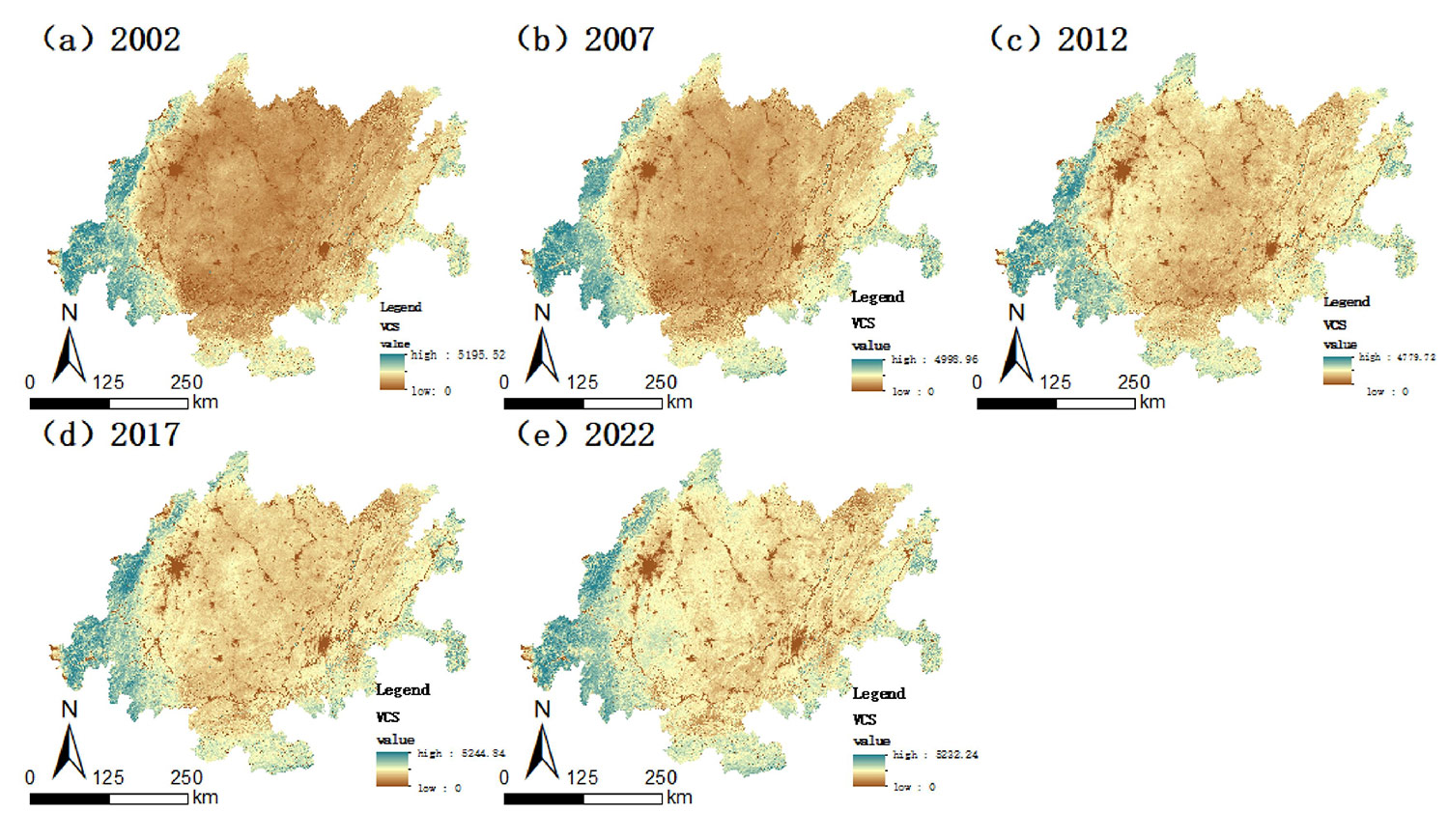Journal of Geo-Energy and Environment | Volume 1, Issue 1: 46-60, 2025 | DOI: 10.62762/JGEE.2025.856697
Abstract
To address two critical gaps in vegetation carbon sink (VCS) research---its limited policy relevance at the county scale and the insufficient identification of nonlinear interactive effects within driving mechanisms---this study focuses on the Chengdu-Chongqing Economic Circle (CCEC). Using MODIS NPP data (2002--2022), we examined the spatiotemporal dynamics of VCS through time-series analysis, standard deviational ellipse, and spatial autocorrelation analysis. Crucially, we applied the Geodetector model to quantitatively disentangle the roles of natural and anthropogenic drivers. The results show that: (1) VCS followed a fluctuating upward trajectory, peaking in 2019, but declined sharply i... More >
Graphical Abstract


